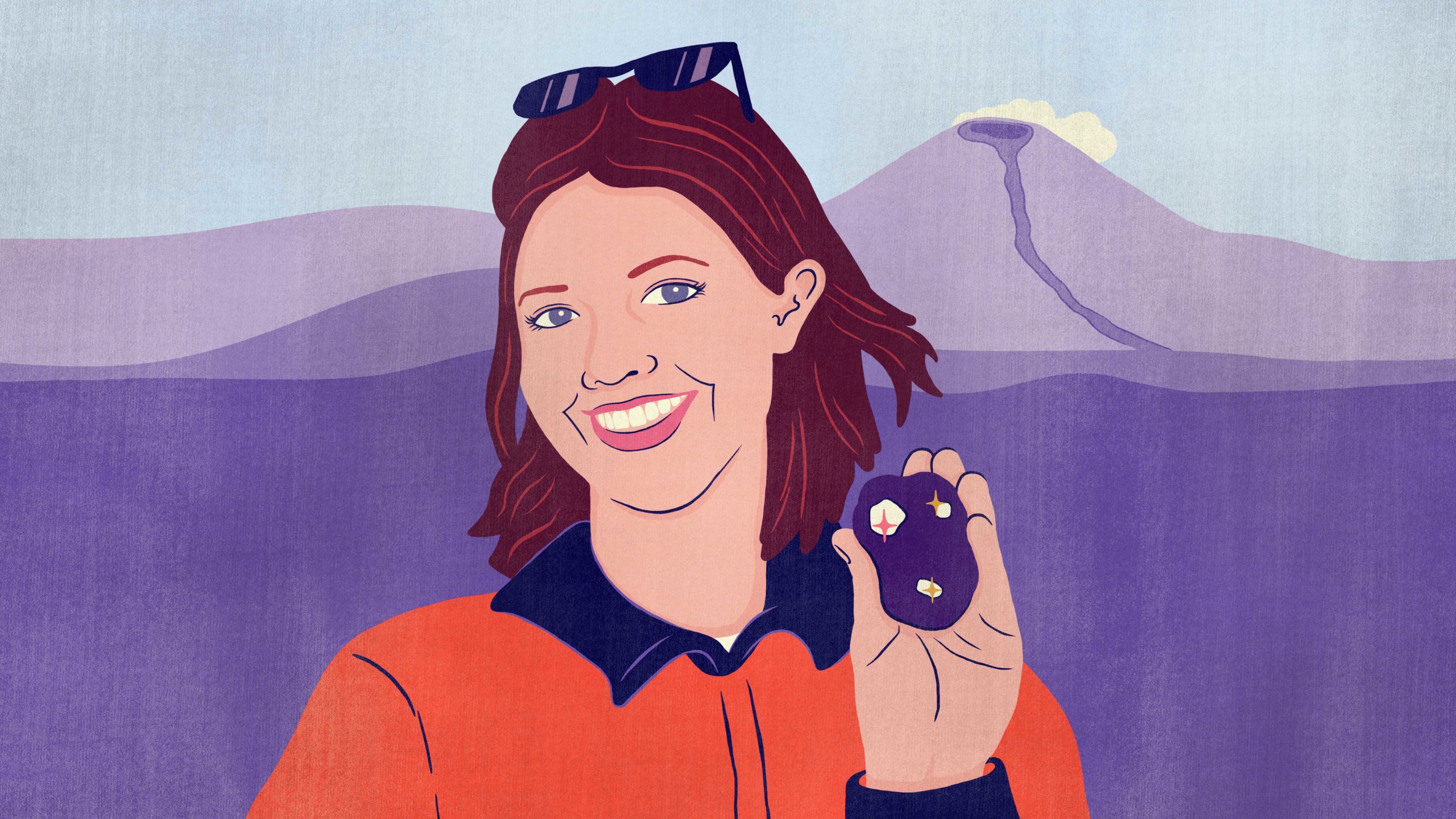Rebel Women: Dr Alison Shaw
“Because women haven’t done something before, it doesn’t mean you can’t do it.”

Alison Shaw grew up in Vancouver, Canada, surrounded by mountains, glacial lakes and all the wonders of a big city. With a scientist mom and an engineer dad, she had inspiring role models to look up to at home and her family spent time together hiking and exploring nature outdoors.
Although she loved art and music, academically Alison was drawn to the physical sciences and languages, working hard to learn as much as possible at school. It was here that she experienced a defining moment that drew her into the diamond world. “A professor brought in an amazing collection of diamonds. I had never seen an uncut diamond still embedded in a rock before, it’s very rare. Once you start to learn about diamonds from a scientific point of view, they are fascinating, you can learn about the deep interior of the earth unlike any other gem stone. They can tell you about ancient atmospheres and how the continents formed. I wanted to find out more.”
Alison’s love of the natural world led her to study geology at university, spending her summers working for mining companies. Back then, she encountered some setbacks for being a woman. “I’d apply for summer jobs, but in the nineties there was a male focus in the industry and some companies said they weren’t interested in hiring women. When I asked why, they said that they wanted strong guys to carry rocks and it would be too ‘hard’ for a woman – as if carrying rocks was hard! Of course I knew that those companies weren’t the places I wanted to be.”
Later, as a geology graduate, Alison was able to take part in grass-roots expeditions to Costa Rica and Nicaragua, which she loved. “Together with a team of two other female geology graduate students, I climbed every volcano in Costa Rica and Nicaragua, including Momotombo which stands nearly 1,300 meters high in Nicaragua. Some of the vents within Momotombo’s crater were as hot as 700 degrees C. We became the first female international students to climb some of these volcanoes, which felt amazing.”
In spite of being a woman traveling and setting up camp in remote locations, Alison has always felt safe. “We travelled in groups and worked with local universities. To me, any lack of safety was more related to the work we were doing. We had challenging hikes with equipment. One wrong step and you could fall, not to mention the rattle snakes!”.
After graduation, Alison initially followed an academic path. In 2005, after doing a post-doc at the Carnegie Institution for Science, she spent seven years as a professor teaching at Woods Hole Oceanographic Institution teaching and doing research before returning to industry.
Today, Alison is a senior Geochemist at Lorax Environmental Services. Together with the De Beers Group, her research and development teams are exploring ways to reduce the environmental impact of mining. Their pioneering research explores how rocks diamonds are found in can help fight climate change by capturing and storing carbon.
“I lead a project called ‘Project CarbonVault’, which is all about transforming kimberlite into carbonated rock,” explains Alison. Kimberlite (the rock in which diamonds are formed) is a rare volcanic rock originating from deep in the earth. Due to its composition, when brought to the surface, it reacts with carbon dioxide. “By mining kimberlite you are actually exposing new rock surfaces that can absorb and therefore reduce carbon dioxide. This project has the potential to play an important future role in locking away carbon from the atmosphere.”
Working with De Beers Group has been a positive experience for Alison in terms of experiencing gender equality in the industry.
“I’ve been happy to see not only how many women there are in the business, but how many women there are in senior positions.”
“There’s a lot of diversity, it makes for a very welcome environment.” It’s certainly a far cry from the early days of Alison’s experience when some doors were shut to women geologists.
To help more women and young people enter her profession, Alison is also part of the Engineers and Geoscientists BC (British Columbia) mentorship program. “The program pairs you with junior members and I’ve found a lot of the women in particular come to me for advice. I enjoy giving them mentorship and working through their career goals. Having been a professor it’s intuitive for me to provide guidance.” Alison’s advice to a girl wishing to follow in her footsteps is simply, “find something that you are passionate about, and recognize that it takes hard work and dedication to succeed. Also, know that just because other women haven’t done something before, it before doesn’t mean you can’t do it. Climbing Momotombo was something people wouldn’t even have thought a woman would want to do but I became one of the first female grad students to do it. Know you can break through barriers and follow whatever path you choose.”
